writing
now browsing by tag
Muscle Memory

“Writing is a perishable skill.”
Last year, about this time, when I was first given the opportunity to give writing lectures to 200 students at a time, I started from this point.
Actually, I took a moment to challenge the room. I described how I’d already met so many of them in them center, signed them up for classes, workshops, and individual appointments. And, how almost everyone of those encounters started with the student stating some version of “I suck at writing.” I paused for just a second, made eye contact with various people, and I asked, “When was the last time any of you got better at something by walking around talking about how terrible you are at it?”
Some audible groans, chuckles, and head shakes filled the room.
I went on to tell them that writing is a perishable skill. If they hadn’t been writing in the last ten years – and very few of them had, then of course they weren’t going to be very good at it right now. I even did my level best to make a sports analogy about how if you stopped playing a sport for 10 years, you couldn’t expect to start playing again at the same level.
Last week, I did the same bit, but I sharpened it a bit, simplified. I still started with “Writing is a perishable skill,” but then I simplified, “which means writing is a skill.” A skill you can practice and develop. My lectures are a part of a series designed to shepherd the students through their cumulative degree process. At this point in the year, I’m trying to give them as much motivation, hope, and faith in the process as I can. Hoping they will start working on their writing skills to prepare them for the drafting work that will come in January – March.
I love this time of year, and I hate this time of year. I love the new class/new year energy. I hate the way I feel like a fraud for telling a truth I know I do not practice. Although I’ve journaled faithfully nearly every day of the last year, I haven’t done any sort of what I would call “writing” in that time. Nothing that I intend to share with an audience.
Looking back, when I wrote that last post about energy levels, I didn’t realize how depleted I was. I have perhaps needed this break. My entire life has been about pushing through, moving forward, which has been tremendously helpful. And, writing, specifically blogging has been one of the ways I’ve always kept pushing, even when I could only manage one post a month, or year. Yet, this past year, I couldn’t keep it up in spite of an excellent plan and outline for a series. I just had no more energy for writing. I didn’t have much energy for anything, so I rested.
My word for this year was “balance.” Thinking back, I can see how all the rest and all the pampering of myself I have done this last year helped to create a balance in my life. It taught me a bit about how to be in my new life. Yes, I am still trying to figure that out. My new life is full of abundance in just about every way imaginable and balancing in this environment has been about learning to embrace the time and space that abundance allows with massages, facials, retreats, and rest.
I felt like a fraud last year as I spoke about writing and that feeling only compounded this year. So, here I am. Attempting to work a muscle that I’ve let atrophy for the past fifteen months. It’ll take time and it’ll be clunky, but it’s time to get back into writing shape. Rowing for the past 70 weeks has taught me a bit about perseverance, but clearly, I’m still not the best at motivating myself.
Daily Practices

As someone who routinely exhorts others to try daily writing, and who knows from experience how helpful it can be, lately I’ve been woefully bad at following my own advice. Since finishing my dissertation, I have periodically tried to get back into daily writing practice. Participating in a writing retreat, joining a writing accountability group, making spreadsheets to track my progress, pursuing different types of writing, I have tried everything.
Out of all that effort, I have an article that still needs about 5 – 10 hours of revision before sending it out, the sporadic blog posts you see, the first few scenes of two novels, and the first drafts of two poems. Starting things seems to be the easy part for me, the continued effort – or actually finishing – that is not my strong suit. Are there external factors in some of this, definitely: last year within the span of three months I took a new job, packed up the house, and moved to a new region of the country; now after spending the last four months adapting / learning my new job, I am being pressured to start taking on more and more; and, well, there are other significant challenges not for blog consumption. The result, I am fairly certain that anyone who looked at this list, or listened to me talk about things for a while, would tell me my inability to get back into daily writing practice is to be expected, and that I need to cut myself some slack here. In fact, I’m fairly certain I have heard those exact words from nearly all my close friends.
Surely within the archives of this site there is one, if not six, versions of this post, so what is different this time? This time, I am accepting it. Instead of supplying a lot of “yeah, but…” excuses and responses, and continuing to beat myself up about not writing while forcing myself to try to fight through it, I am taking the braver (for me) route of practicing a little self-care, of letting go of the pressure to always write. This morning I realized that I am able to take this position, to be a little kinder to myself, because what I have been unconsciously developing is a daily reading habit.
For a girl who’s been reading voraciously as long as she can remember, it might seem strange that I am just now developing a daily reading habit, but I am. I have always read voraciously, but I have also always been a binge reader. I love to read in one, or two if necessary, long sessions where I can truly immerse myself in whatever world I am exploring. Though they were often spread out over a longer period of time, even my audio book listens counted as small binges, given the length of my commutes. Now that I no longer have that commute, my book listening has slowed considerably. I put my Audible account on hold in December, and have seriously considered cancelling it because I am just not listening as often as before.
This year, though, this year.
I know we are only a month in, but this year has already kicked my ass and taken my name. I’ve been in full on crisis mode for about three weeks already; and since that is not ending any time soon, I’ve done what I always do to cope … turned to books. I have just had to learn a new way to do that because there is no time for long escapes into other worlds, or even just good advice. Every day for the last week or so, I’ve programmed my coffee pot, set my alarm, and gone to bed early. I have done all those things, so that when the coffee starts brewing, my white noise app shuts off, and the alarm starts to play “Rise Up,” I can snooze for 15 minutes, then get up, fix myself a cup of coffee, get back in bed and read for 30 – 45 minutes. It’s not working miracles, but I do think it’s contributing to my ability to manage my current situation. In fact, though it has always been very good, Monday at the Dr.’s office my blood pressure was the lowest it has ever been.
Also this morning, despite everything I’m reading, or perhaps because of it, when I found myself in the middle of some bad self-talk and mounting shame about how I should be using this time to write. I was able to stop those thoughts, and realize that for now a daily reading habit is enough.
On Roxane Gay and learning to be bad …

Bad Feminist by Roxane Gay had been lurking around my consciousness for a while – something I knew I should read, and should want to read, but couldn’t really find the energy for. On some level, I expected to see too much of myself called out in the book. I expected too much finger pointing about the ways I am not committed enough to the movement. As someone who tries her best to do the hard work, to look for the gaps in her thinking, to own and learn from her mistakes, and to make sure her feminism is intersectional and inclusive, I worried that Bad Feminism would be about the failings of White feminism, which as a a white woman always implicates me. I couldn’t face the thought of an entire book about how I’m doing it all wrong.
Then, I watched Roxane Gay’s TED talk. Then, I went home followed her on twitter, and put Bad Feminist on my Kindle to start reading. I saw myself in nearly every chapter, and not in the way I expected. Our experiences are fundamentally different, but the places of connection were so strong for me: the early resistance to feminism, the tension between the popular culture we consume and the intellectual values we hold, the commentary and critique of film, television, and current events I wished I’d written, the escape into books (Trixie Belden was my Sweet Valley High). By the time I got to “Typical First Year Professor,” I was in tears. This semester, man, I can’t even describe it, but if you really want to know what the last few months have been like read that chapter. I shot an email to Ouiser, who of course had already read the book, and her first response back was something about how that chapter made her think of me.
Don’t worry, I’m not trying to put Gay on the Feminist Pedestal she decries, nor do I mean to overwrite her stories with my own. It has, however, been far too long since I read a book that energized and moved me in the way this one did. Bad Feminist makes me think about the other aspects of myself where I feel a tension between who I am and what I think the requirements for that label are. In the introduction Gay says:
“I openly embrace the label of bad feminist. I do so because I am flawed and human. I am not terribly well versed in feminist history. I am not as well read in key feminist texts as I would like to be. I have certain … interests and personality traits and opinions that may not fall in line with mainstream feminism, but I am still a feminist. I cannot tell you how freeing it has been to accept this about myself.”
Though I hadn’t labeled it as bad feminism, I also have made peace with the differences between mainstream feminism and my own feminist thought. Now I wonder, how else might it be freeing to accept a label of bad ____ in my life. What are the other ways I attempt to define myself, yet feel inadequate when I think about the expectations of the label?
Writer.
I am a bad writer.
Though I don’t put “Writer” on my business cards, it is something that is central to what I do, and I’ve been struggling to claim it as an identity marker. I wrote a dissertation, but am mortified at the thought that anyone has read it. I write academic things, but I don’t ever send them in for publication. I supposedly write this blog, but am lucky to manage one post a month. Don’t tell anyone, but I even have the seeds of some fiction pieces floating around my computer in Scrivener files. I know the rules about writing everyday, about shitty first drafts, and about revision, but I don’t follow them consistently.
As I thought about my goals and set my theme for this year, much of my brainstorming had to do with the ways I needed to be a better writer. I need to submit that article to that journal. I need to write another article for that other journal. I need to post more frequently to this blog. I need to give those fiction seeds some attention to see what grows from them. But, what if all those things I need to do to become a better writer aren’t the goal. What if instead my goal is to embrace the way I am a bad writer? What could accepting that about myself free me from? What would it make me ready for?
After Umpqua Community College
October 1, 2015
The first thing I read that day was a thread from a professional listserv. A professor asking advice from colleagues about how to deal, and help her class deal, with the shooting of a student.
The first thing I wrote that day was a conference proposal about the ethics of writing center sessions, and their connection to diversity and inclusivity
Because I had several writing tasks that day, I kept myself away from social media and news sites. It wasn’t until after lunch that I heard about the massacre at Umpqua Community College.
The Pacific Northwest is a large place. Physically, I am not from anywhere near Umpqua Community College. I did, however, begin my educational career at a community college in the Pacific Northwest; perhaps, that is why this particular incident of school violence feels different to me.
Image from here, couldn’t find appropriate credit.
Though I went to community college in Washington and perhaps things are different in Oregon, the community college mission is so closely tied to region and place that I feel comfortable generalizing a little bit from my own experience. With the caveat that I am only speaking from my experience as a student: Community colleges in the Pacific Northwest are different than I have seen elsewhere, because, though they provide technical support and programs, they function more like junior colleges preparing students for transfer to four year schools.
I do not joke, or exaggerate, when I say that the best part of my education happen at that community college. I learned how to think; In a 10 week quarter learning community, I did nearly as much writing as I would do for my dissertation. Most importantly, my time in the community college classroom introduced to the importance of diversity of all kinds in the classroom. My community college classroom included traditional students fresh out of high school, recent returners, like me, with a year or two of “real world” experience, grown men and women forced into retraining by the declining industries in our area. Throughout my studies there I learned to work with people of different faiths, races, sexuality, and abilities. Was I always the best friend and all I could be, no; I was naive, and I was learning.
Of course, I wasn’t able to articulate the importance of my experience in that Northwest community college until I left it. Until I sat in an undergraduate classroom where everyone there looked the same, and though I couldn’t articulate it, I knew we were missing important perspectives. Until I moved south where I could really learn about race, racism, and how my silence and support was sometimes better than my best intentions. Until I taught at a community college where technical programs were valued over liberal and general education courses.
Certainly, my image of my community college is tinted in the rosy glow of nostalgia, but even so I would never have called it an idyll or safe space. I was pushed, challenged, and yes … sometimes it was uncomfortable, but I was never afraid. Having been away, having my own new perspective, it was that little difference; my confidence in my physical safety, that allowed me to accept the push, the challenge, and the discomfort of my community college education. That is the little difference, the confidence in their physical safety, that the students of Umpqua Community College, and many other community colleges lost yesterday. As I grieve for the lives lost, the lives irrevocably altered, I also grieve for that lost confidence, the lost element that enabled so much of my own learning.
One of the posters to that thread on the professional listserv reminded everyone of “the question from Mary Rose O’Reilly that Claude Mark Hurlbert put before us at IUP: “Is it possible to teach English so that people stop killing each other?””
Perhaps, I am not the English teacher I thought I would be when I was at the community college. Heck, I am not even the English teacher I thought I would be in grad school. As of October 1, 2105 though, I am an English teacher ready to wrestle with this question; to do everything in my power to “teach English so that people stop killing each other.”
Writing Prep
When the alarm went off at 5:15 this morning I quickly silenced it, spent a moment thinking about what I would write, and then rolled over to sleep for another 45 minutes.
Early morning is definitely my most productive writing time, but I am just not sure I am ready for early morning again.
What I did get done today is some good writing related reading. This fall our writing center will expand, and by expand I mean basically become two centers. Of course I get to run both without an increase in salary, but … well, that’s a different conversation. As we put together this new program, I am trying to be more deliberate about what the assessment of this program will look like.
Now, I know there are people out there who like to think about programmatic assessment because I am reading their books; however, I am not so excited about this topic, and sometimes it makes for some slow reading. The book I’m currently working my way through, Building Writing Center Assessments That Matter is good, and I am finding helpful information. The only problem is (and this is my issue with most assessment discussions) as I read I keep asking myself, “When? When does all this happen?”
Maybe it is just that with the addition of this new center I now run three different programs throughout the year. Maybe it is just that I have not become a Pomodoro master yet and therefore have not reached the zenith of my productivity. Whatever it is, I am left unable to imagine squeezing one more thing into my day.
Challenges
Earlier this weekend Shelley Rodrigo issued a challenge to her graduate students: The 5 Week Regular Writing Challenge. While I am not one of Shelley’s graduate students and have only met her briefly, I have recently fallen off my regular writing wagon. Since I turned the dissertation in to the ETD editor (the first time), scrubbing floors on my hands and knees has been more appealing that sitting down to the computer to write.
Sure, posting here has been on the up-swing, but that is only because I finally broke down and bought a keyboard for my iPad, which makes it easier to write from anywhere. Unfortunately, I think the dissertation turned my computer desk into a site of trauma. Since the house is small enough that rearranging furniture isn’t really an option, I need to find a way to reclaim the space.
Accepting the Regular Writing Challenge is my way of attempting to re-claim the space and find my writing rhythm again. The biggest issue for me right now is not having a clear project to start with, and not really knowing what I want to write next. My current position does not require me to publish regularly, but I need to get something submitted for publication to prepare for the next position. What I hope to accomplish over the course of the challenge is an easy re-entry into academic writing. My plan for accomplishing this goal looks like this:
- Week 1 – any writing counts
- Week 2 – any writing counts + focused goal: Updating application materials
- Week 3 – any writing counts + focused goal: Begin an annotated bib of recent readings
- Week 4 – any writing counts + focused goal: Free write to develop argument form recent readings
- Week 5 – any writing counts + focused goal: Begin first draft of whatever has developed from bib/free writes.
The idea behind the two different types of goals, any writing + focused writing, is that if it turns out to be too soon to think about academic writing, that I can count any writing I do here towards the challenge and still feel some positive momentum.
And of course today counts! 😉
What I learned in the process
Earlier this week the Malarkey Bin tweeted that Ouiser is putting together an annotated bibliography of advice for anyone considering graduate school. Given that Ouiser often articulates my darker feelings of this whole experience, I think this is an amazingly optimistic of her. I think I’ve crossed into a slightly more jaded realm.
Partly, it is just that in the push to get done I pushed down some serious irritation. Partly, it is that over the course of the last three years I’ve talked a couple different student through decisions about graduate school. While I’ve not actively tried to dissuade anyone, I have tried to be as honest as I can about my own experiences – including sharing the things I wish I’d known when I started -, and I don’t think in any case it has made an impact. However, among all the other powerful influences that lead a person to a position where they need to make a choice about graduate school there is a strong dose of of exceptionalism. I can almost guarantee that every person I talked to about graduate school left my office thinking, “yeah, but…” So, I guess my optimism about offering advice to someone thinking about graduate school has taken a hit.
Today, this came in the mail:
And my heart grew a couple sizes, so here are the two things I wish I’d known at the beginning of graduate school.
First, I wish someone had given me Paul Silva’s How to Write A Lot. During the dissertation process I am pretty sure I ready a million “how to write…” books, and really they all say the same things. For whatever reason, however, I find Silva’s book the most approachable. As someone who got through school on last minute writing, it wasn’t until I started the dissertation that I had to learn how to spend time with an idea, and how to do something besides binge write. I think reading this book earlier in my career might have helped me make something more significant out of my seminar papers.
My second piece of advice is perhaps a little more esoteric; get an Audible account. Audiobooks helped me stay sane in this process because I could listen while driving, doing chores, working out, walking the dogs. The only rule I had for my audible account was that nothing I listened to could have anything to do with my school work. Personally, I listened to fluff – the cheesier the better, detective novels, Stephen King, Dean Koontz, young adult novels. Nothing I listened to required serious thought on my part. The importance of all this listening is that it kept me linked to my love of reading without making me feel guilty for not doing my “work.”
These two thing boil down to – Mind your writing process, and stay connected to what you love.
Floundering …
Arguably, I think my strangest reaction to finally graduating is feeling all dressed up with no where to go.
Sure I have some fancy letters by my name and a little more time on my hands, but everything else stayed the same. Same job, same husband, same dogs, same projects looming …
The kicker is that now I have the time to research and write, but I don’t know what to write about. Do I start another big project (book length)? Do I try to get some articles out for review? Do I update my Vitae and get ready for the market? Do I chuck it all and really delve into a project about corpses on television? (Because, yes, I am interested in that.) Or, maybe I actually try writing that detective novel that keeps poking around my head? As usual for me, the more options or time I have the less I know what to do with myself.
At least I finally managed a mid-week post!
Finding a muse
The most amazing thing happened this week! I met my good friend Dr. D, who is so like me it is eerie, for lunch. Apparently being born in 1973 led to some pretty twisted personalities. In addition to getting our Ph.D. in the same field (at different institutions with different specialties), Dr. D and I share a love of crime novels, BBC crime/mystery shows, Discovery ID, and a healthy fascination with serial killers.
The idea of a healthy fascination with serial killers could seem like an oxymoron, but hear me out. While she and I will both spend hours watching Discovery ID and Biography specials, reading mystery novels, etc, each of us maintains an empathy for the victims, and neither of us is going to start writing letters to prisons any time soon.
As I have written before, though perhaps not here, I believe my fascination with serial killers stems from having grown up in the Pacific Northwest. Although Bundy had been caught in Florida by the time my family moved to Washington, the stories about Bundy and his preference for girls with long straight hair parted down the middle were still omni-present. Those stories also held a particular fascination for a 10 year old girl with long straight brown hair that parted in the middle. I’m not saying any of his victims really looked like me,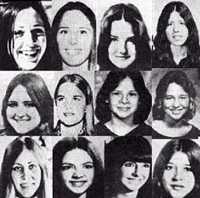 but they did present a window into what I could look like when I grew up. By the time we moved from Minnesota/Canada Bundy’s Washington siege was over; however, Green River Killer victims were being found at an alarming rate through a good part of my childhood.
but they did present a window into what I could look like when I grew up. By the time we moved from Minnesota/Canada Bundy’s Washington siege was over; however, Green River Killer victims were being found at an alarming rate through a good part of my childhood.
Dr. D, I learned that first day we spent getting to know each other, grew up in Atlanta during the Atlanta Child Murders. While she did not fit the victim profile for those murders, the similarity between our likes and fascinations seemed to bolster my opinion that growing up in the shadow of an active serial killer leaves a mark. It is not any one thing I can describe clearly, but I do not believe the similarities between Dr. D and I are that odd when you take into account our formative environments. Children pick up on so much more than we give them credit for, and I couldn’t even guess at the consequences this contemporary melange of misogyny, sex, and violence will have.
Anyway, I think you can see why Dr. D told me I needed to watch Hannibal and tell her what I thought. It might also explain why I broke through my television ennui to actually do it. Dr. D’s recommendation, and my love of the characters in Thomas Harris’ series, led me to go so far as to get the NBC app to catch up to where the series is now. Having admitted to my love of this particular set of Harris’ characters, I also have to give this disclaimer – that love doesn’t extend to some sort of desire for utter faithfulness to Harris’s world or vision. While I enjoyed the book Hannibal, I think there are some important ways the movie is better, which is also true of Silence of the Lambs. All of which could be the topic of a different set of posts.
The television ennui I mentioned above extends over the whole of my life. Being truly done, having finally received my Ph.D., left me at some fairly significant loose ends. Sure, there is more time to fill, but I haven’t had the drive to fill it with anything. The last two weeks I have spent poking at things – starting crochet projects instead of finishing the ones I already have, whacking snakes in Tapped Out, looking at the mess of a desk I still need to clean up, and wanting to write a blog post here or there – but not feeling like I had anything to say. So, something pretty amazing happened as I began watching NBC’s Hannibal, I realized I had something to say. I won’t make any promises about the speed in which I will write these posts, but I do know there are at least two different posts coming about this show.
Writing Updates …
Someday I will write about something other than writing, I promise. Unfortunately, I don’t anticipate that day happening with any regularity any time soon.
Recognizing my need for some help getting my butt in the seat and actually writing, I decided to build writing into my schedule. Not wanting to overwhelm myself, I started with just one week at a time, and I built into the schedule the writing I was already doing. Since I was already writing on the bus, and I knew there was no way I’d be getting up any earlier than 6:00am, the next time I could work writing into my schedule was at lunch. So, I started putting my lunch/writing on my schedule at work. Initially, I was going to work at the library, which would have the added benefit of getting me to walk across campus another couple of times during the day. The reality is that it’s getting to be winter, which around here means rainy and cold – walking across campus is not necessarily going to motivate me to get writing. Just outside of my office there are several cubicles used from math/science tutoring, so now I just check the tutoring schedule to see which one is open, and I take the little netbook in a cubicle and write for an hour. Surprisingly, I really love it. I don’t waste time getting anywhere, and it still feels like a ‘new’ space, and since it is a cubicle I can really focus.
At the start, I’d also put some evening writing time in the schedule, from 7pm – 9pm. Yeah, um, that didn’t work. My brain is pretty much drained by that time, and I want some time to spend with the DH. Sure, we might spend all that time sitting on the couch playing Scrabble on my phone, but it’s still together time. Ok, and sometimes, when the stars align, we have sex. The point is that no good writing happens, not even shitty first draft writing. Not keeping the appointment was diminishing the success I felt at writing everyday in other situations, so I took it off the schedule.
So, this is what my writing schedule looks like. Early morning bus time, an hour at lunch, and full mornings on the weekends. This might not help me meet the crazy goals I’ve set for myself, but, most importantly, I think it is a sustainable schedule. (I’m silly like this, so I made sure the appointments show up in my calendar as a color I like.) Time for my weekend writing to start.



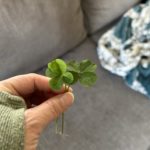


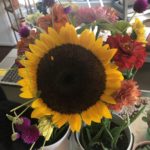
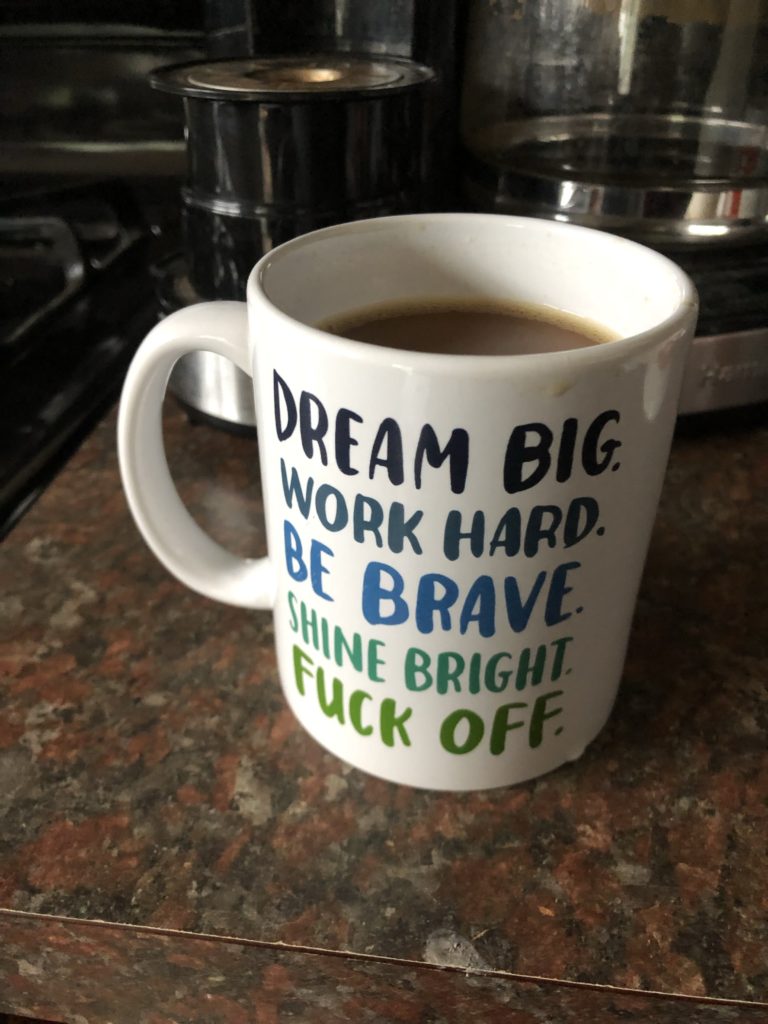
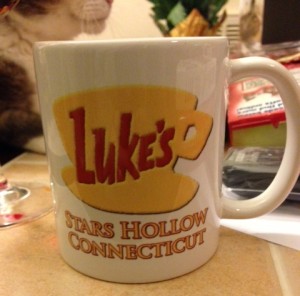






 D5 Creation
D5 Creation